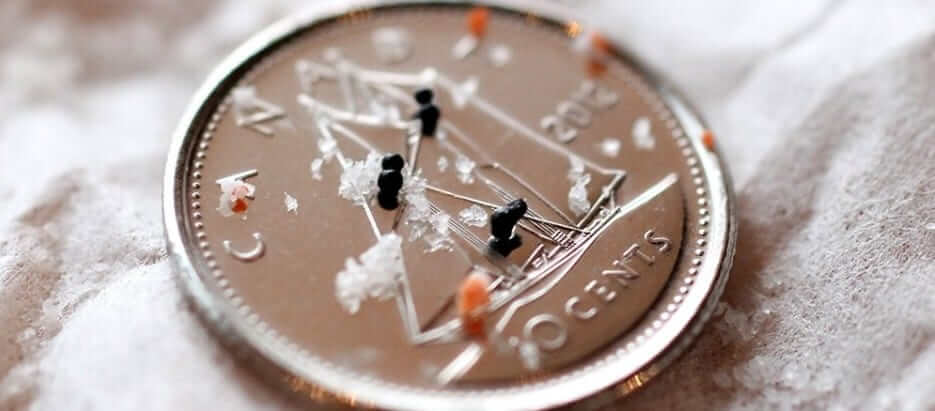Take Action to Ban Microbeads

We're partnering with LUSH to expose the truth about plastic microbeads and the detrimental effects they have on our oceans and waterways. Help us #BanTheBead!
How Plastic Microbeads Are Causing Big Problems
Plastic microbeads, tiny pieces of plastic typically smaller than 1mm in diameter, are added by cosmetic companies to personal care products such as facial and body scrubs and toothpastes, to be used as exfoliants. These microbeads are often too small to be caught by our wastewater treatment plants and end up in our rivers, lakes and our oceans, adding to the growing quantity of microplastic debris in these waters.
The plastic particles don’t break down in water. They adsorb chemicals that are present in the water and are eaten by fish and other marine life who mistake them for food. Eating microplastic, including microbeads, can cause DNA damage and even death to the wildlife that ingests it. Microbeads have been found in the Great Lakes; further research is required to determine their presence in other waterways, such as the Ottawa River.
You can help put an end to this unnecessary addition of plastic into the consumer products used by millions of Canadians each day.
Take Action
- Pledge to refrain from buying products with plastic microbeads.
- Ask retailers if they are aware of the federal proposal to ban plastic microbeads in personal care products and encourage them to remove products containing plastic microbeads from their shelves before the ban comes into effect.
- Share with a friend!
- Read more about microbeads in our press releases and in our blog (links below).
On Tuesday, March 8th 2016, Lake Ontario Waterkeeper, Ottawa Riverkeeper, Fraser Riverkeeper and North Saskatchewan Riverkeeper jointly submitted comments the regulations proposed by the federal government to ban microbeads in Canada. Read the full comment here.
Feature photo: Lake Ontario Waterkeeper

